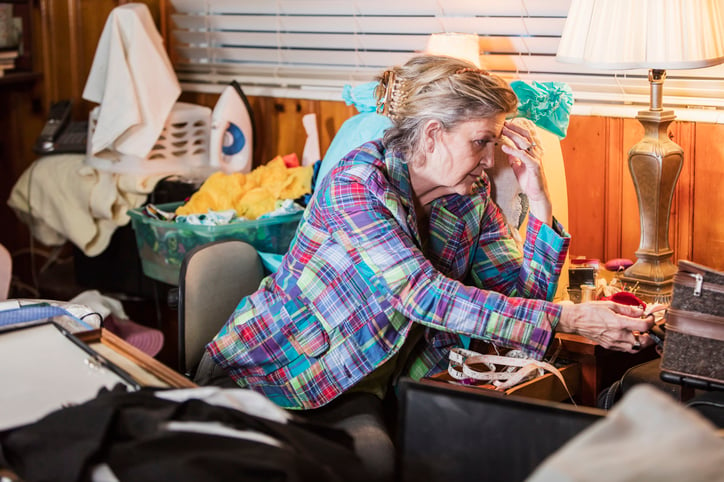As a parent grows older, an adult child may wonder what options are available to keep their loved one safe and happy. While many people are familiar with the term assisted living, also referred to as personal care, fewer understand what it entails and when it’s time to consider it. The same is true for in-home care.
Added to the mix is the fact that seniors of today are known for being proud and fiercely independent. An older adult might recognize they need a helping hand, but be reluctant to admit it. That’s why waiting for a parent to ask for help, especially if the solution requires giving up their home, isn’t usually a good idea.
Sometimes the best solution is a move to an independent living home on a life plan community campus with assistance nearby to enable the senior to remain in their house a while longer. Other times it means transitioning an older loved one to assisted living. But how can you tell when a senior loved one needs help if they don’t ask for it? What can you do to objectively assess the situation?
Here are a few signs to look for when you next visit with your parent.

Is It Time to Talk with a Senior About Assisted Living?
There are almost always signs—big and small—that suggest an older adult could benefit from a move to an assisted living community:
- Condition of the home: Is a once tidy home looking neglected? Overflowing trash, odors, dirty dishes, and an overall lack of cleanliness may seem like small issues, but they can be a sign the senior is struggling.
- Lack of maintenance: Are home repairs and lawn-care chores being ignored? Burned-out lightbulbs, broken handles on cabinets, and an untended yard are also red flags an older adult is having difficulties.
- Mistakes with finances: Has the senior made mistakes with bills? Perhaps neglecting one while paying another bill twice? Are there stacks of unopened mail on the counter or left in the mailbox? Mistakes managing finances are something to be explored in detail.
- Medication errors: Another major concern is how well your senior loved one is managing their medication schedule. Medication mistakes, such as taking too much of one medicine and not enough of another, can land a senior in the emergency room.
- Sleep problems: Insomnia or irregular sleep patterns that cause them to sleep too much or too little can indicate a problem. This may be due to a lack of physical exercise or socialization.
 Another indication of a struggle might be a deterioration in your aging parent’s appearance. Some changes are subtle and easy to overlook while others might be more alarming:
Another indication of a struggle might be a deterioration in your aging parent’s appearance. Some changes are subtle and easy to overlook while others might be more alarming:
- Dirty or disheveled hair or body odor
- Unexplained bruises or scratches
- Unintentional weight loss or gain
- Clothing that is dirty or inappropriate for the season
If the red flags outlined above can be used to describe your parent’s situation, it might be time to explore your options for assisted living. In-person and virtual tours are the best ways to learn more.
Download our Complimentary Assessment Tool
Making an informed decision about assisted living for a senior should be a thoughtful process. That’s why we created a free tool families can download. The Senior Community Evaluation Checklist will give you helpful suggestions for objectively comparing one community with another.
